Educating girls is an overlooked solution to the climate crisis yet empowering young women through education is one of the best ways to save our planet. A growing body of evidence suggests girls’ education is key in our global efforts to build greater environmental awareness and contain climate change.
CSE’s “A Girl and a Bike” project, provides scholarships, bicycles and hostels to enable underprivileged girls to access quality secondary school education, protect them and build their resilience against climate change, violence and poverty. CSE believes that, among other factors, formal education plays an active role in protecting and improving the environment and community livelihood.
Most vulnerable girls in the rural areas of Balaka, Neno and Malawi face complex and multifaceted challenges in their attempt to access education. The impacts of climate change amplify the inequalities experienced by marginalized girls and young women in Malawi. The climate crisis affects girls’ lives in so many ways. More girls are forced to drop out of school to either cover longer distances find water or food, take care of their siblings (whilst parents go search for food). Girls are forced into child marriages to ease the economic pleasure of the family and this increases their risk to violence, health problems and reduces their opportunities to find work. 46 percent of girls in Malawi are married before they turn 18; 1 in 10 before the age of 15.
CSE partnered with New Community Project (USA based organisation) in providing scholarships to over 200 secondary school girls. This project aims at enabling underprivileged girls to access secondary school education which costs $115 per girl/year. Want to donate?
“ Stiveria Vincent (Left) is in form 3 and comes from Kanono, Neno. She covers a distance of 23 km (one way) to school, needing to leave home a little before 5 am just to make it to class at 8 am. Due to walking in the heat for long distances, she developed sores on both her feet and these being recurring and untreated, developed into further health problems for her. Before we met her, she had started to come to school only two to three times a week just because her legs couldn’t allow her to walk for the whole week. CSE gave her a bicycle last year and she is able to come to school and has not missed a day since.”
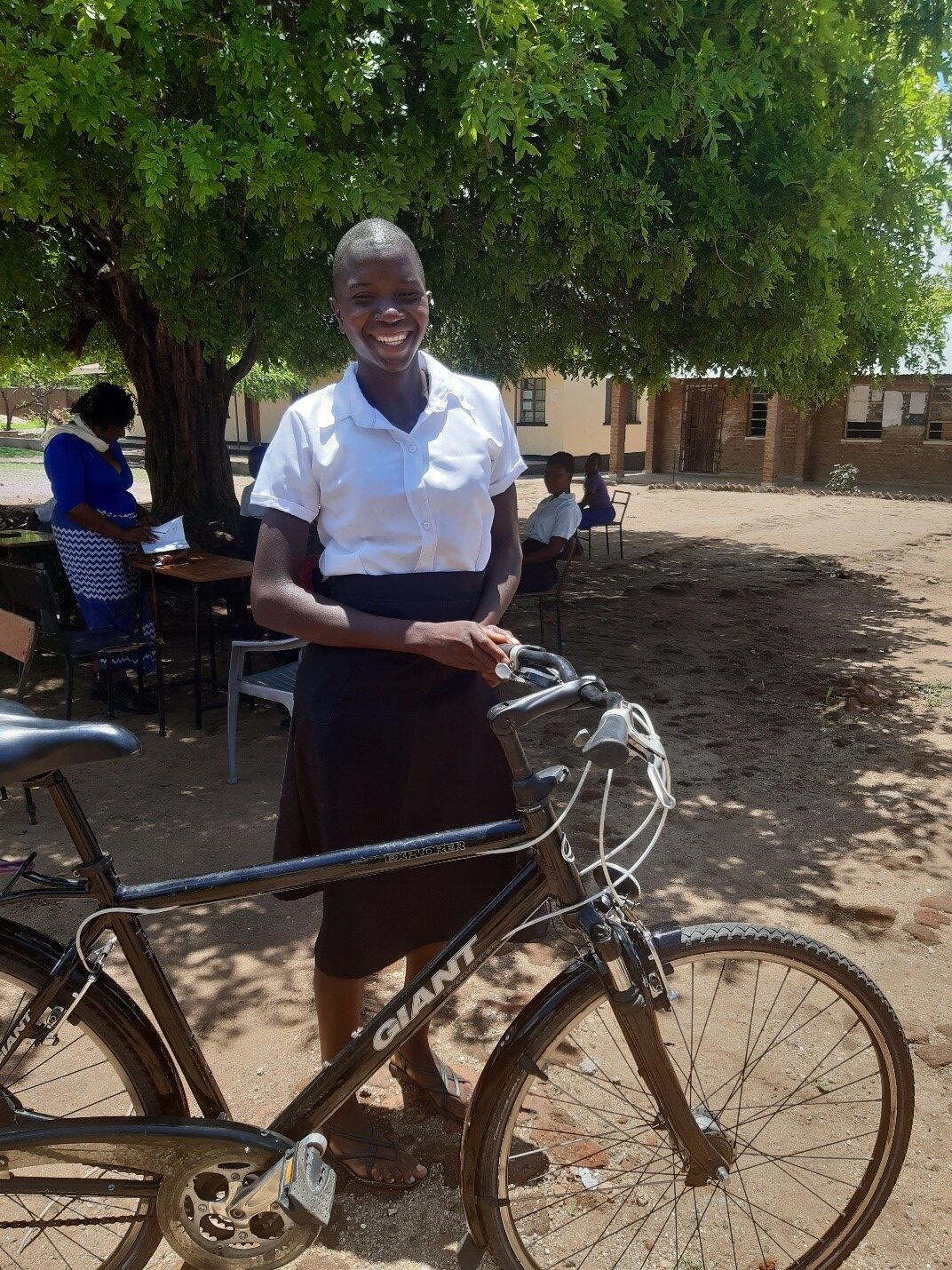
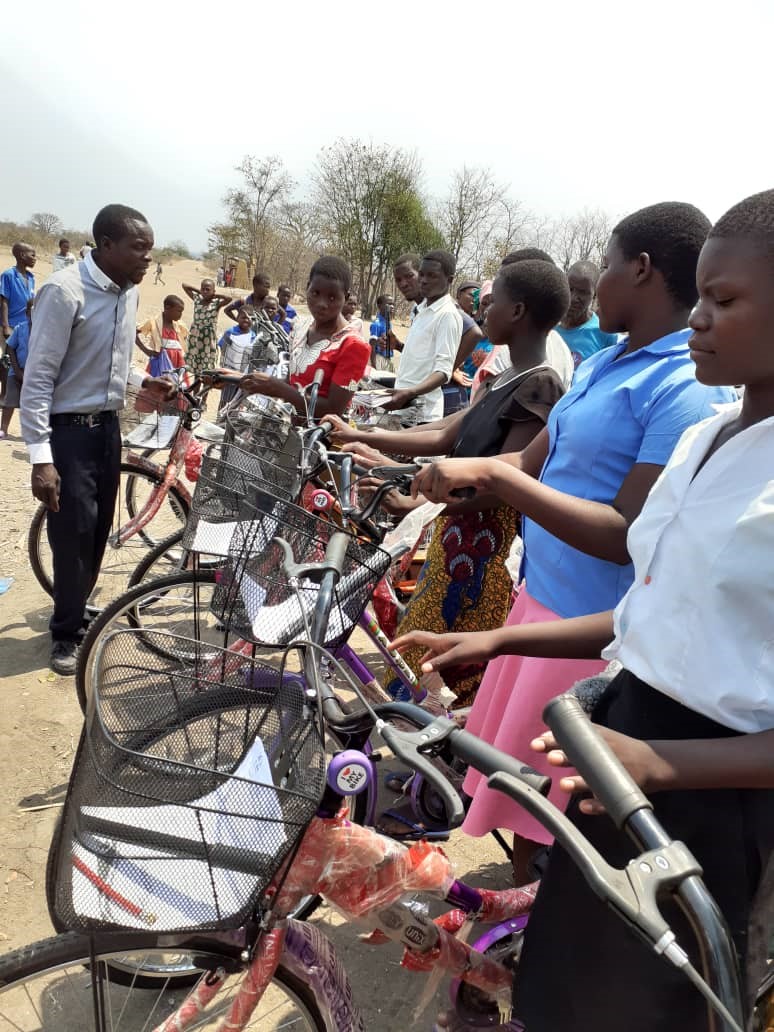
“ Stiveria Vincent (Left) is in form 3 and comes from Kanono, Neno. She covers a distance of 23 km (one way) to school, needing to leave home a little before 5 am just to make it to class at 8 am. Due to walking in the heat for long distances, she developed sores on both her feet and these being recurring and untreated, developed into further health problems for her. Before we met her, she had started to come to school only two to three times a week just because her legs couldn’t allow her to walk for the whole week. CSE gave her a bicycle last year and she is able to come to school and has not missed a day since.”
CSE has so far provided more than 35 bicycles to girls from Matope Community Day Secondary School to help girls like Stiveria who cover longer distances to get to school. In addition to them getting to school tired and late for classes, the journey to school also puts their lives at risk due to various threats and challenges met along the way. Due to inadequate secondary schools in Balaka and Neno districts some girls are selected to schools that are 60 or more kilometers away. Self-boarding is their best shot at attaining secondary education for these girls. These teenage girls are often left to fend for themselves. The living conditions expose them to multiple risks including sexual and emotional abuse, teenage pregnancies and child marriages.
“I come from Magombo village (more than 90 kms away) to study at Utale Secondary school. I endure a lot of hardships ranging from lack of a secure, proper and healthy place to sleep and lack of opportunities to study( since we do not have electricity).I spend more time growing food. I can’t carry food from home due to the long distances. There are men that threaten us at night as well.” Ruth Mandime.
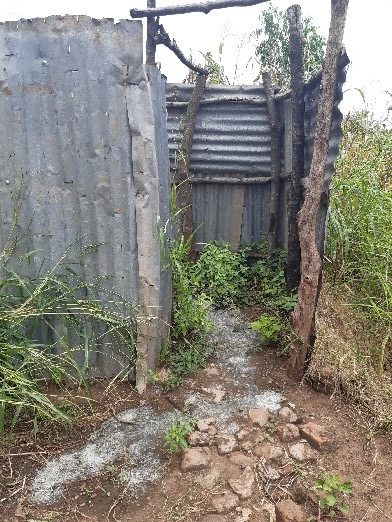
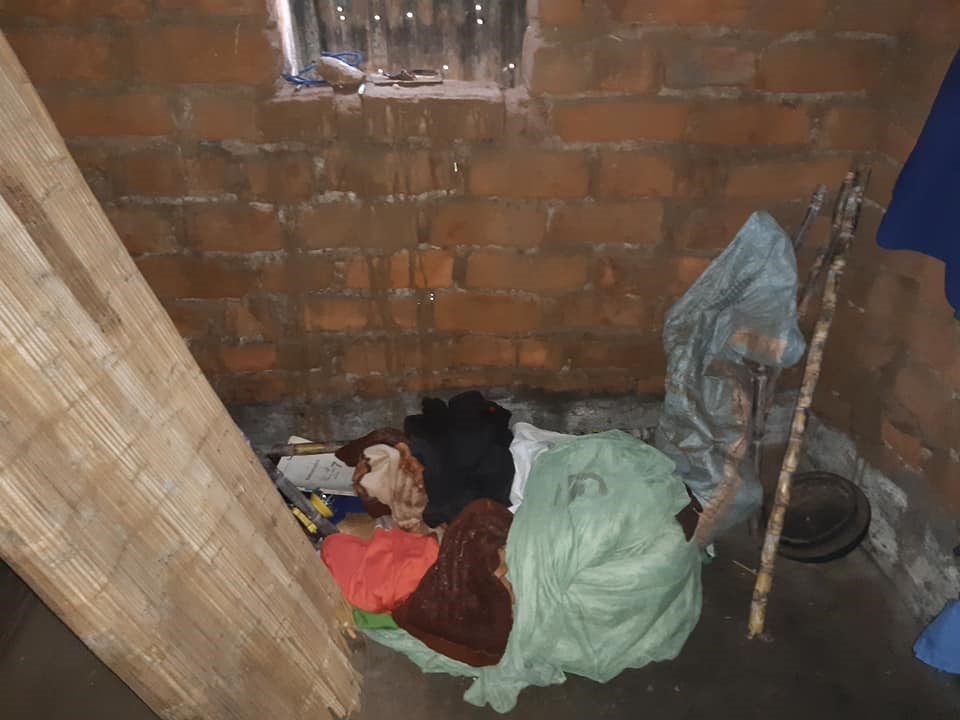
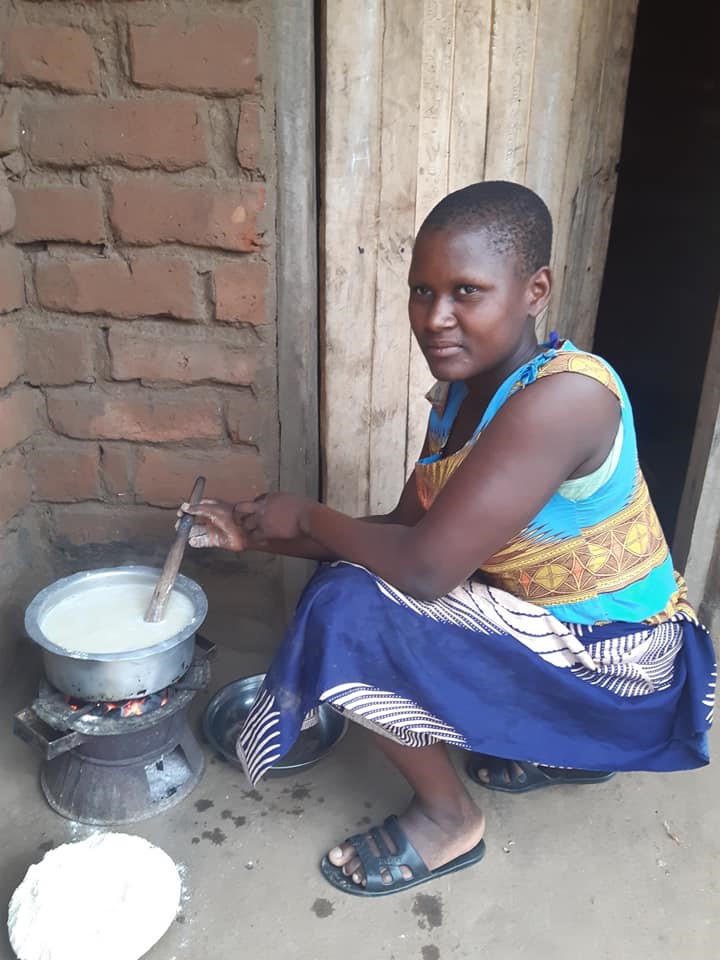
Before pictures showing the girls bathroom (right), sleeping area (centre) Ruth preparing her meal (left).
In order to assist girls like Ruth, in addition to providing them with scholarships, Creative Solutions for the Environment has built two girls hostels at Christian Liebig Community Day Secondary School in Mdeka and Utale Community Day Secondary School in Balaka. Each hostel accommodates 20 girls. The girls were previously renting the cheapest accommodation available which often meant living in harsh conditions and unsafe dilapidated buildings, sleeping on the floor without a mat or blankets. These young teenage girls also lacked adult supervision. These conditions often put the girls at risk of exploitation and gender based violence among other challenges.
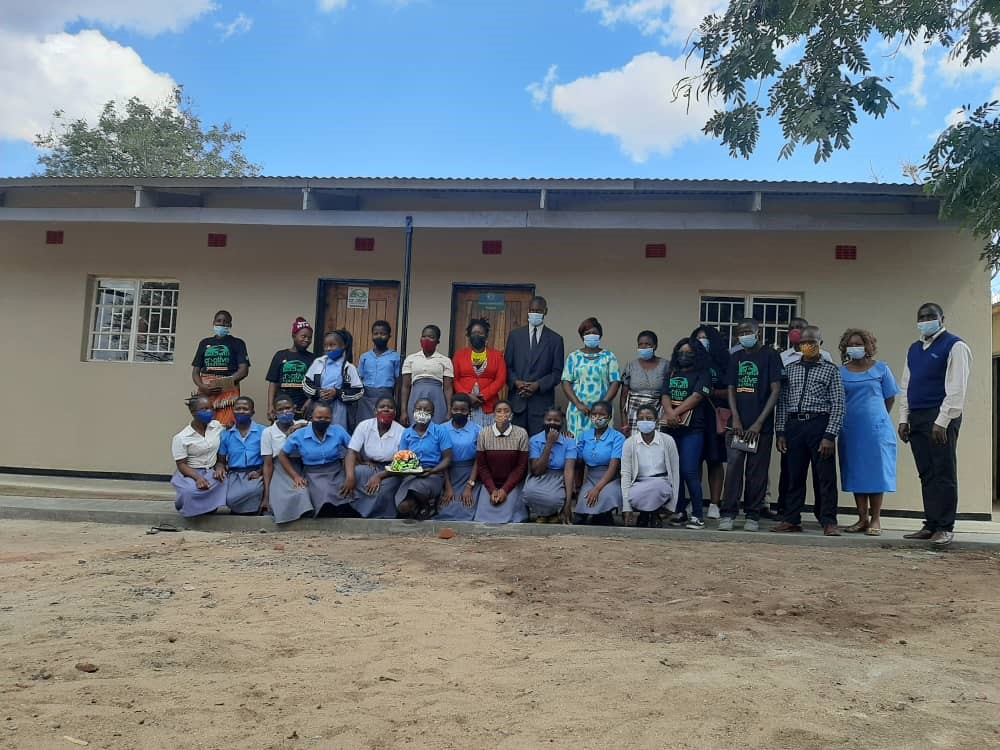
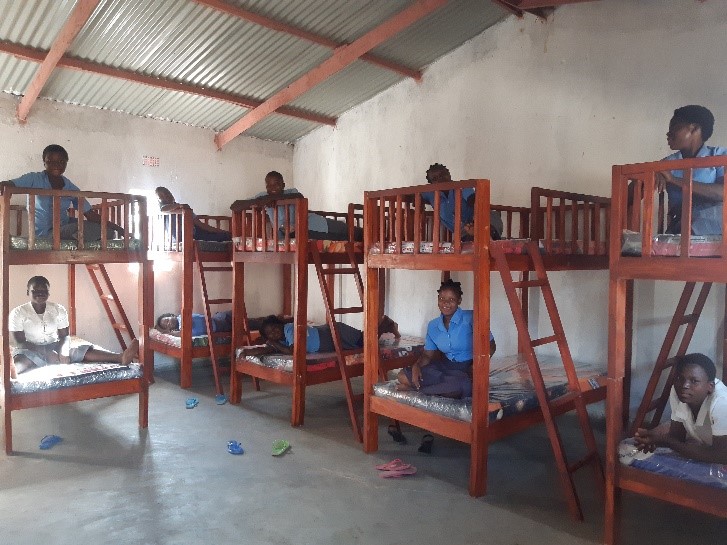
Picture shows part of the Christian Liebig Hostel CSE built for girls who were self-boarding.
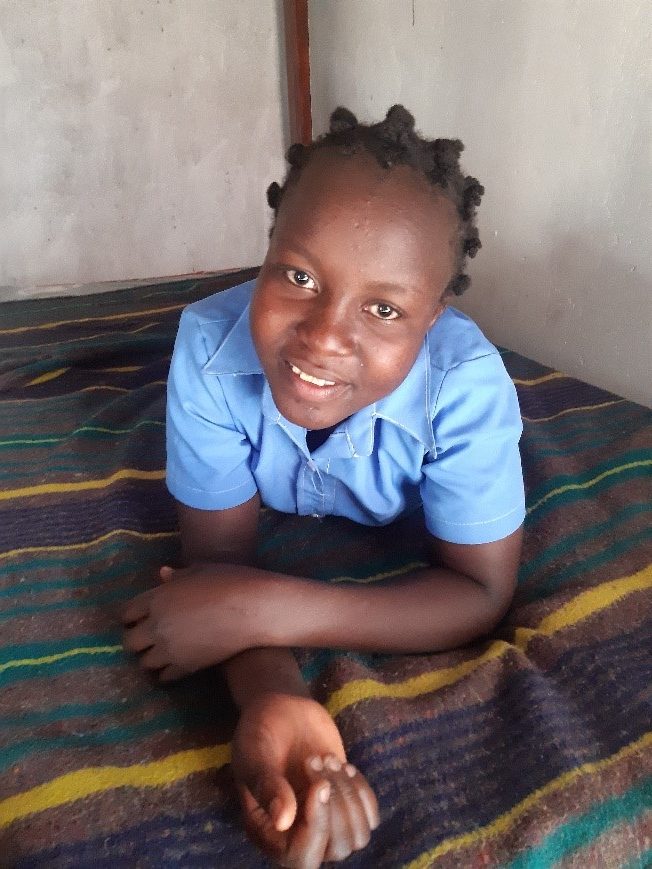
Photo of Linda Rafaelo on her bed in the hostel
“Thank you so much. Not only am I able to attend all my classes, but I can also sleep comfortably. Ifeel safe and cared for.” – Linda Rafaelo, 13 years old student from Christian Liebig Secondary School.
There’s a ripple effect – younger girls are studying harder in hopes of getting a bike and a Scholarship themselves, as this may be the only way they can attain higher education.

